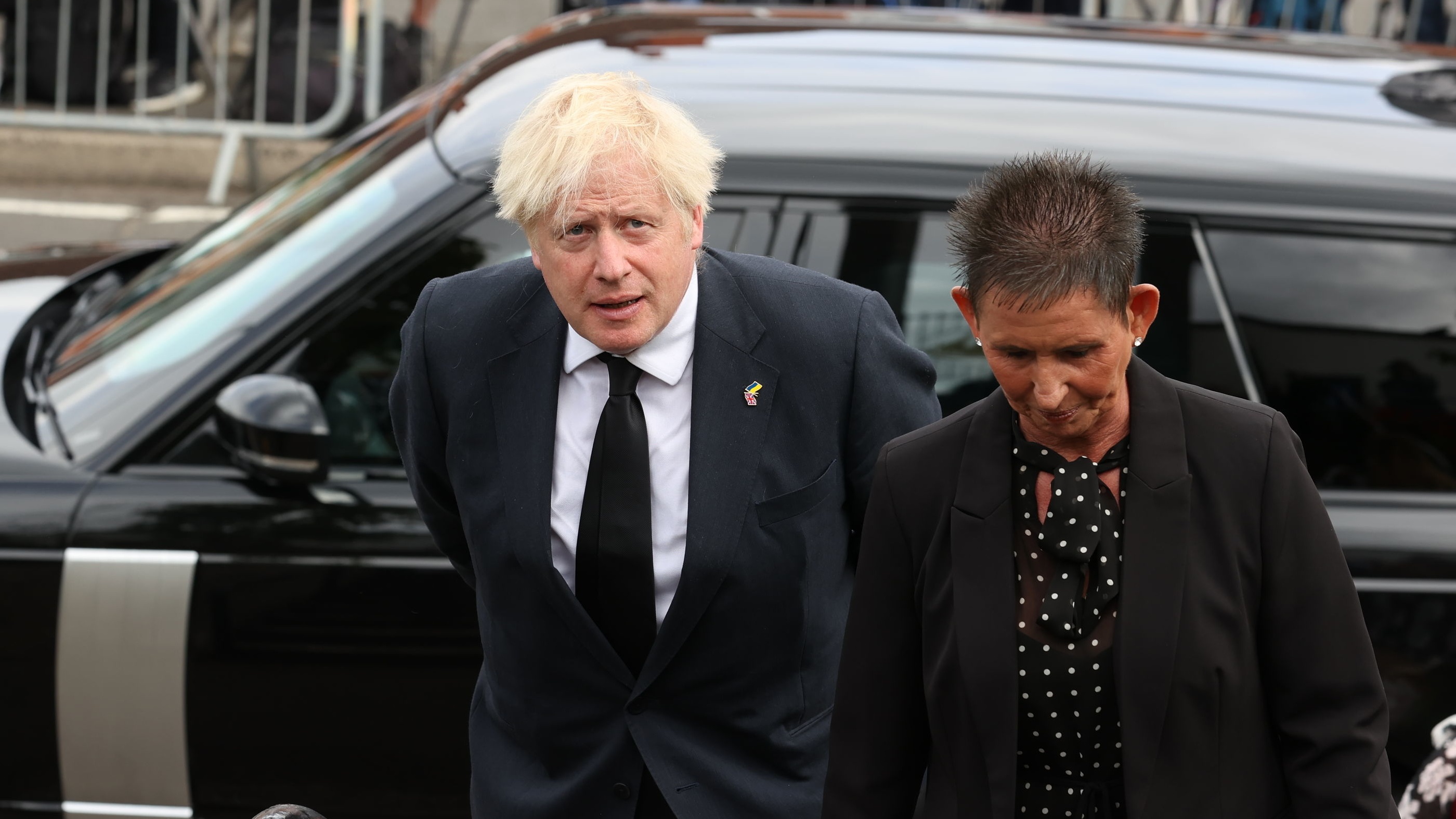Will Boris Johnson step down as an MP?
Critics of the prime minister have called for him to resign his Commons seat

A free daily email with the biggest news stories of the day – and the best features from TheWeek.com
You are now subscribed
Your newsletter sign-up was successful
Boris Johnson will stand down as prime minister next month, but his career in Parliament hangs in the balance as he faces a cross-party grilling over the Partygate scandal and calls from critical backbenchers to quit as an MP.
Johnson could be suspended from Parliament if he is found to have misled the House of Commons by the Privileges Committee, which is continuing its inquiry into Johnson’s denials that any Covid laws were broken during lockdown.
To add to his woes, Conservative backbenchers desperate to leave behind the Partygate scandal have urged Johnson to resign as an MP to avoid further “embarrassing” scrutiny over the matter, reported The Guardian.
The Week
Escape your echo chamber. Get the facts behind the news, plus analysis from multiple perspectives.

Sign up for The Week's Free Newsletters
From our morning news briefing to a weekly Good News Newsletter, get the best of The Week delivered directly to your inbox.
From our morning news briefing to a weekly Good News Newsletter, get the best of The Week delivered directly to your inbox.
Calls to stand down
Critics of Johnson want to “do a deal” with the outgoing prime minister and in return “axe” the Privileges Committee investigation into the Partygate scandal, headed by Labour grandee Harriet Harman, which is expected to “drag on for months”, reported paper.
They are calling for him to stand down in order to avoid going in front of the Privileges Committee, which would keep the “spotlight” on a “deeply embarrassing” issue for the Conservatives, which has fractured the party, it said.
One source told the paper that there was a case “not just for the parliament party, but for everyone” to move on from the “psychodrama” of Johnson’s involvement in the Partygate scandal.
The source said that the “quid pro quo” for backing a motion that would effectively wind up the probe would be Johnson “getting out of the Commons”.
A free daily email with the biggest news stories of the day – and the best features from TheWeek.com
‘Witch-hunt’ accusations
Allies of Johnson have dismissed the Privileges Committee investigation as a “witch-hunt” and a “constitutional travesty” as they sought to end the probe into whether Johnson misled Parliament over Partygate, reported The Mail on Sunday. The paper also pointed to what it called “anti-Boris remarks” made by some of the committee members.
One of Johnson’s closest allies, Culture Secretary Nadine Dorries, tweeted yesterday that continuing the probe would be “the most egregious abuse of power witnessed in Westminster”, and added that it would “cast serious doubt not only on the reputation of individual MPs sitting on the committee but on the processes of Parliament and democracy itself”.
If Johnson is found to have misled Parliament by the committee, he could face suspension from the Commons and a recall petition, which, if signed by 10% of his Uxbridge and South Ruislip constituents, would trigger a by-election.
If he chose to quit, this would also trigger a by-election, leaving the former Conservative safe seat of Uxbridge and South Ruislip in a precarious position.
The “big question” is whether Johnson’s successor, most likely to be Johnson loyalist Liz Truss, will try to whip MPs to call a halt to the Privileges Committee inquiry, said Politico’s London Playbook.
Sorcha Bradley is a writer at The Week and a regular on “The Week Unwrapped” podcast. She worked at The Week magazine for a year and a half before taking up her current role with the digital team, where she mostly covers UK current affairs and politics. Before joining The Week, Sorcha worked at slow-news start-up Tortoise Media. She has also written for Sky News, The Sunday Times, the London Evening Standard and Grazia magazine, among other publications. She has a master’s in newspaper journalism from City, University of London, where she specialised in political journalism.